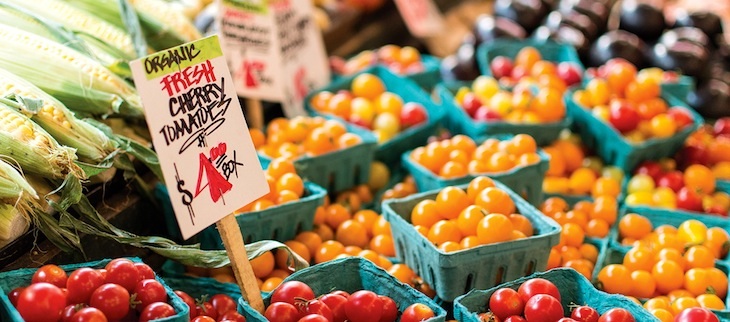Flood waters impact produce crops in the state
by September 2, 2020 9:36 am 362 views

Tropical Storm Laura and subsequent torrential rains throughout Arkansas during the last week have produced flooding in numerous areas.
It is well-documented when Arkansas’ top agricultural crops such as rice and soybeans are impacted by winds and rains, but less talked about is produce, which can be significantly impacted by flood waters.
Amanda Philyaw Perez, assistant professor and extension specialist for Food Systems and Food Safety at the University of Arkansas System Division of Agriculture tells Talk Business & Politics that flooding can result in crop exposure to sewage, chemicals, and other pathogens.
“I work mostly with produce farms to help them understand regulations for produce safety and implement practices to keep their farms and the food they grow safe,” Perez said.
A few of the state’s top “specialty” produce crops include tomatoes, sweet potatoes, and watermelons. Tomatoes are a grown on about 2,000 acres and have an annual value of about $10 million. Sweet potatoes are grown on about 4,000 acres annually and have a value of about $20 million. Watermelons are grown on 1,600 acres and have a $5 million value, according to the Arkansas Farm Bureau.
Other produce crops such as cucumbers, peppers, lettuce, apples, and others are also grown on smaller scales in the state. Vegetables grow on about 650 farms statewide, with an annual acreage of about 15,000 and $850 million in value. There are an estimated 1,100 fruit farms in the state that generate $180 million each year.
Two types of flood waters can impact crops, Perez said. The first occurs during heavy downpours that produce large pools of water on field surfaces. This type of flooding rarely introduces pathogens into crops, she said.
The second type of flooding originates from waterways such as overflowing rivers, lakes, streams or others. This type of flooding can expose produce to the types of pathogens and chemicals that can compromise produce. Long water exposure can also cause mold to grow.
Edible portions of produce exposed to toxic flood waters should be considered “adulterated” and should not be introduced into the food system, according to the U.S. Food and Drug Administration.
